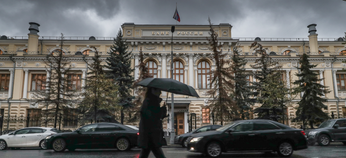
Les scandales liés aux fausses nouvelles touchent les médias indépendants russes
L'un des plus grands scandales ayant touché les médias indépendants russes depuis des années est apparu la semaine dernière : une journaliste ayant écrit sur la guerre a été accusée de falsification et d'invention. Presque toutes les publications qui ont travaillé avec elle se sont empressées de retirer son travail et de présenter des excuses à leurs lecteurs.
- La journaliste, qui écrivait sous le nom d'Asiya Nesoyeva (pseudonyme d'une jeune femme de 21 ans originaire du Tatarstan, dont le vrai nom est Jamilia Sadriyeva), a publié plus de 30 articles exclusifs en tant que pigiste pour des médias indépendants russes depuis le début de la guerreThe Bell n'a pas travaillé avec elle). Elle a relaté l'exécution présumée d'un conscrit russe qui refusait d'aller au front, comment les femmes d'un village tatar ont apparemment caché le dernier homme de leur communauté aux officiers de recrutement et publié les derniers mots supposés de soldats russes à leurs familles et à leurs amis avant leur mort. À trois reprises, Mme Nesoyeva a été désignée par le "comité de rédaction", un projet qui récompense les reportages indépendants en langue russe, pour le meilleur reportage du mois.
- Au début de l'année 2025, plusieurs médias indépendants qui travaillaient avec Mme Nesoyeva ont discrètement commencé à retirer ses articles de leurs sites. Les falsifications ont été rendues publiques après avoir été signalées par le journaliste Oleg Kashin. Ce n'est qu'à ce moment-là que les rédacteurs en chef ont commencé à reconnaître publiquement qu'ils avaient supprimé les articles, soit en raison des falsifications, soit parce que la journaliste n'était pas en mesure de fournir les éléments nécessaires à la vérification des faits. Au moins cinq publications - Kholod, Meduza, Novaya Gazeta Europe, Ostorozhno Novosti et Ideal.Realii - ont supprimé des textes.
- Une autre publication, Important Stories, n'a pas supprimé le travail de la journaliste et a maintenu en ligne le reportage sur le conscrit exécuté. Dans une déclaration officielle, ses rédacteurs ont affirmé qu' ils étaient sûrs de l'exactitude de l'article, qu'ils disposaient de captures d'écran de la correspondance de Mme Nesoyeva avec les parents du soldat décédé et que d'autres médias avaient confirmé l'article. Le média a ajouté qu'il avait travaillé avec Mme Nesoyeva en tant que stagiaire et qu'elle lui avait proposé d'autres articles qui ont été rejetés parce qu'ils ne pouvaient pas être correctement vérifiés.
- On ne sait toujours pas pourquoi Nesoyeva a écrit des fake news. La journaliste elle-même a donné des réponses mitigées. Dans une interview, elle a déclaré qu'elle "trollait". Dans une autre, elle a nié avoir inventé quoi que ce soit et a déclaré avoir écrit la vérité. Dans une troisième, elle a affirmé qu'elle n'avait modifié quequelques détails mineurs, et non le sujet principal.
Pourquoi le monde devrait s'en préoccuper :
La saga Nesoyeva porte clairement atteinte à la réputation des médias indépendants russes, en particulier des organes qui se spécialisent dans les récits humains sur la guerre et la manière dont elle transforme la société russe. Toutefois, il n'est pas raisonnable d'y voir une sorte de crise systémique de la profession - des problèmes similaires ont affecté le New York Times et Der Spiegel. Nous ne pouvons qu'espérer que les normes de vérification des faits deviendront encore plus strictes.










